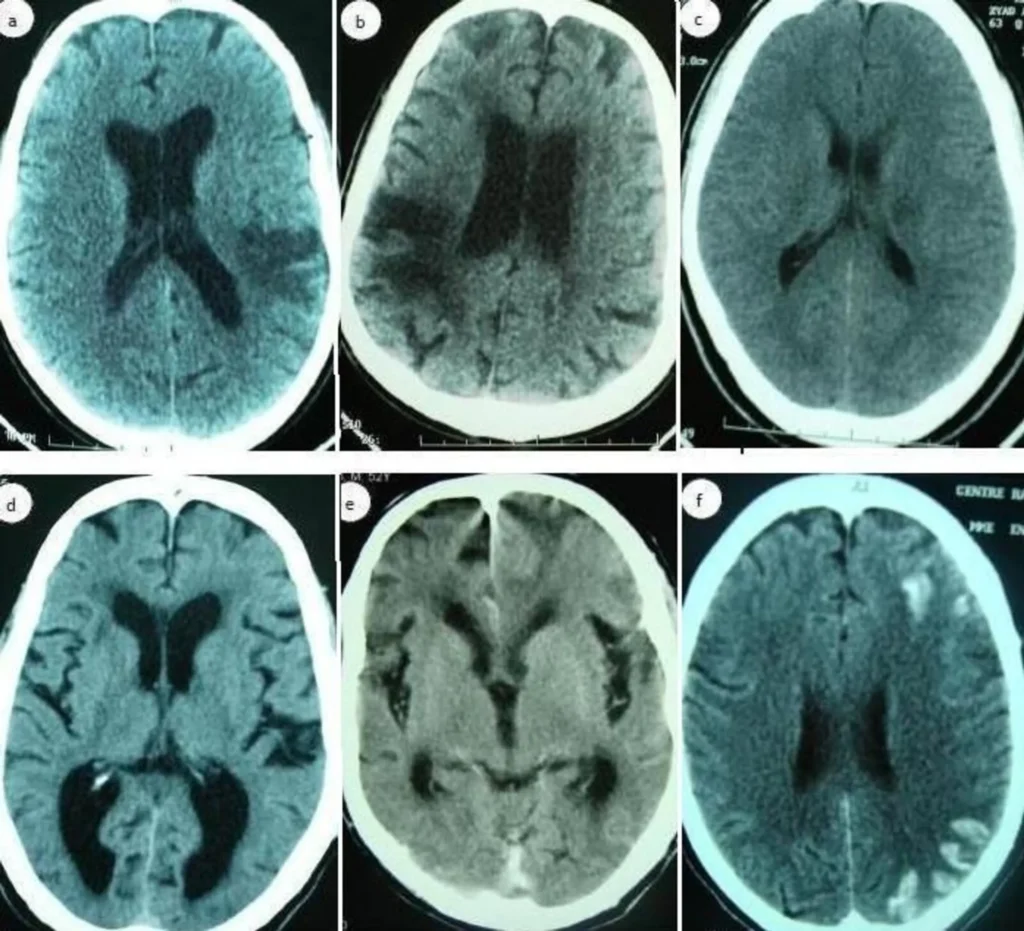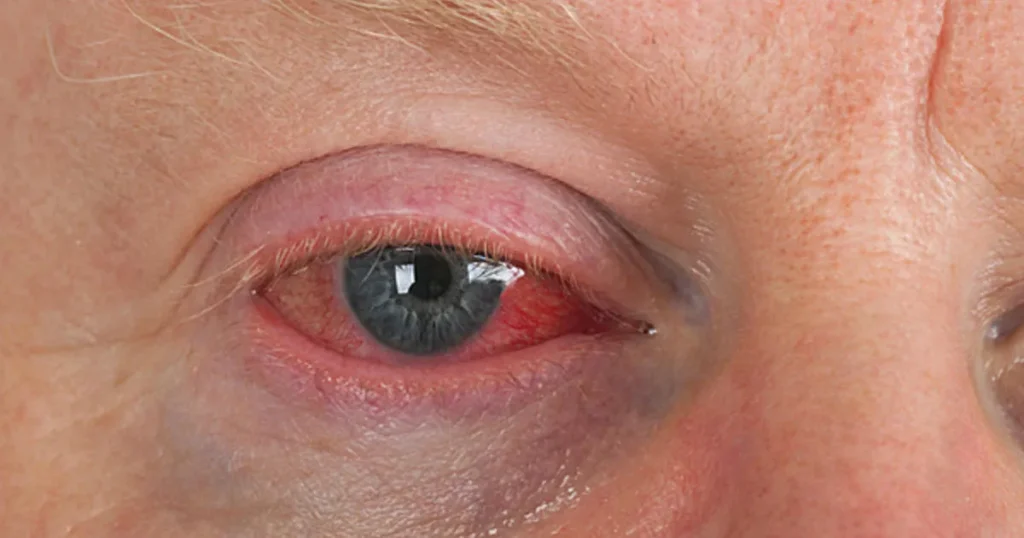What Are The Complications Of Syphilis In Men?
Syphilis is a sexually transmitted infection caused by the bacterium Treponema pallidum. It is primarily transmitted through sexual contact, including vaginal, anal, and oral sex. While both men and women can contract syphilis, this blog post will focus on the complications specifically associated with syphilis in men.
1. Neurological Complications: Syphilis can have serious consequences on the nervous system. This is particularly true if the infection is not treated in its early stages. Neurosyphilis, the invasion of the central nervous system by T. pallidum, can result in a range of symptoms, including headache, difficulty coordinating muscle movements, paralysis, and even dementia.
2. Cardiovascular Complications: Syphilis can also affect the cardiovascular system, leading to potentially life-threatening complications. In the later stages of the infection, the bacterium can cause inflammation in the walls of the blood vessels, leading to the formation of aneurysms. These weakened areas of the blood vessels can rupture and result in severe internal bleeding.
3. Genital Complications: Unsurprisingly, syphilis can also lead to various complications specifically related to the genital area in men. One of the most common symptoms is the development of painless sores or ulcers on the penis or around the anus. These sores can increase the risk of acquiring or transmitting other sexually transmitted infections, including HIV.
How Does Syphilis Affect The Cardiovascular System?
Syphilis is a sexually transmitted infection caused by the bacterium Treponema pallidum. It is primarily transmitted through sexual contact, including vaginal, anal, and oral sex. Syphilis can have various complications and can potentially affect different systems of the body, including the cardiovascular system.
The cardiovascular system is composed of the heart and blood vessels, and it plays a crucial role in circulating blood and oxygen throughout the body. When syphilis affects the cardiovascular system, it often leads to a condition known as cardiovascular syphilis, which can have serious consequences.
One of the most common ways syphilis affects the cardiovascular system is through the development of an inflammation of the aorta, called syphilitic aortitis. This condition can cause the walls of the aorta to weaken and dilate, leading to the formation of aneurysms. If left untreated, these aneurysms can rupture, resulting in life-threatening internal bleeding.
Syphilis And Its Impact On The Nervous System
Syphilis is a sexually transmitted infection caused by the bacterium Treponema pallidum. It can have detrimental effects on various organ systems in the body, including the nervous system. Syphilis has a long history of being associated with neurological complications, which can occur at any stage of the disease. In this blog post, we will explore the impact of syphilis on the nervous system, its manifestations, and the potential consequences if left untreated.
The nervous system is highly susceptible to the damaging effects of syphilis. The disease can invade the central nervous system (CNS), which includes the brain and spinal cord, as well as the peripheral nervous system (PNS), which involves the nerves outside of the CNS. The invasion of the CNS by Treponema pallidum can result in a condition known as neurosyphilis. Neurosyphilis can occur at any stage of syphilis, including the primary, secondary, and tertiary stages.
Neurosyphilis can have various manifestations depending on the specific area of the nervous system affected. Some common neurological manifestations of syphilis include meningitis, which is the inflammation of the membranes surrounding the brain and spinal cord, and meningovascular syphilis, which involves the inflammation of blood vessels in the brain and spinal cord. These manifestations can lead to symptoms such as headache, neck stiffness, vision problems, and even stroke in severe cases.
Genital Complications Caused By Syphilis
Syphilis is a sexually transmitted infection caused by the bacterium Treponema pallidum. It can have various complications if left untreated, affecting different systems of the body. One of the areas commonly affected by syphilis is the genital region. Genital complications caused by syphilis can lead to significant health issues and should not be taken lightly.
When syphilis infects the genital region, it can result in several complications. One common complication is the development of syphilitic chancres – painless, open sores on the genitals. These chancres are highly infectious and can increase the risk of spreading the infection to sexual partners. If left untreated, the chancres can heal on their own, but the infection persists and proceeds to its secondary stage.
In the secondary stage of syphilis, individuals may experience a wide range of symptoms, including genital rashes. These rashes can appear as red, raised spots or as small, fluid-filled blisters. Although the rashes are not typically itchy or painful, they can be highly contagious. In addition to rashes, other symptoms such as fever, fatigue, sore throat, and swollen lymph nodes may also occur.
- Syphilitic chancres
- Genital rashes
| Genital Complications Caused By Syphilis |
|---|
| Syphilitic chancres |
| Genital rashes |
As syphilis progresses to its latent and late stages, the infection can cause more severe genital complications. In the latent stage, where there are no visible symptoms, the bacterium can still be present in the body and pose a risk of transmission. If left untreated, the infection advances to the late stage, which can lead to gummas – soft, non-cancerous growths that can develop in the genital region and other parts of the body. Gummas can cause tissue damage and lead to disfigurement.
Another potential genital complication of syphilis is neurosyphilis. This occurs when the infection spreads to the nervous system, including the brain and spinal cord. Neurosyphilis can manifest as various neurological symptoms, affecting coordination, muscle control, and sensory functions. Sexual dysfunction, such as erectile dysfunction or loss of libido, can also occur.
Syphilis is a serious infectious disease that can have significant consequences if not treated promptly. It is essential to seek medical attention if you suspect you may have been exposed to syphilis or if you experience any symptoms. Early diagnosis and appropriate treatment can help prevent the progression of genital complications caused by syphilis and reduce the risk of further transmission.
Syphilis And Its Effect On The Musculoskeletal System
Syphilis is a sexually transmitted infection caused by the bacterium Treponema pallidum. While it is primarily known for its impact on the reproductive and cardiovascular systems, syphilis can also affect the musculoskeletal system. The musculoskeletal system is composed of the bones, muscles, joints, and connective tissues that support the body and enable movement.
When syphilis progresses to its later stages, known as tertiary syphilis, it can cause significant musculoskeletal complications. One such complication is syphilitic arthritis, which is characterized by inflammation and swelling of the joints. This condition often affects the larger joints, such as the knees, elbows, and ankles. The inflammation can lead to pain, stiffness, and difficulty in movement.
Another musculoskeletal manifestation of late-stage syphilis is gummatous osteomyelitis. This condition occurs when the bacterium causes inflammation in the bones and surrounding tissues, leading to the formation of gummas. Gummas are large, destructive lesions that can result in bone deformities, fractures, and chronic pain. They primarily affect the long bones, such as the tibia and femur.
In addition to these complications, syphilis can also cause myopathy, which refers to muscle weakness and atrophy. This occurs due to the invasion of the bacterium into the muscle fibers, leading to their degeneration. Myopathy can result in muscle pain, cramps, and difficulties in mobility.
- Syphilitic arthritis
- Gummatous osteomyelitis
- Myopathy
| Complication | Description |
|---|---|
| Syphilitic arthritis | Inflammation and swelling of the joints, resulting in pain and limited mobility. |
| Gummatous osteomyelitis | Formation of gummas in the bones, leading to deformities, fractures, and chronic pain. |
| Myopathy | Muscle weakness and atrophy due to the invasion and degeneration of muscle fibers. |
Understanding The Ocular Complications Of Syphilis
Syphilis is a sexually transmitted infection caused by the bacterium Treponema pallidum. It can affect various parts of the body, including the eyes. Ocular complications of syphilis can occur at any stage of the infection and can lead to significant vision impairment if left untreated. Understanding the ocular complications of syphilis is crucial for early detection and prompt management of the infection.
One of the most common ocular complications of syphilis is uveitis, which refers to inflammation of the uvea, the middle layer of the eye. Uveitis can cause redness, pain, and blurred vision. Syphilitic uveitis typically presents as a posterior uveitis, affecting the choroid and retina. If not treated promptly, it can result in severe vision loss.
Another ocular manifestation of syphilis is interstitial keratitis. This condition involves inflammation of the cornea, the clear outer layer of the eye. Interstitial keratitis may cause symptoms such as photophobia (sensitivity to light) and decreased visual acuity. If left untreated, it can lead to scarring and permanent damage to the cornea, resulting in visual impairment.
Syphilis can also affect the optic nerve and cause optic neuritis. Optic neuritis is characterized by inflammation of the optic nerve, which transmits visual information from the eye to the brain. When the optic nerve is inflamed, it can cause pain, reduced color vision, and visual field defects. Timely treatment is crucial to prevent permanent vision loss.
It is important to note that ocular complications of syphilis can occur even in individuals who do not have any symptoms or signs of the infection in other parts of the body. Therefore, regular eye examinations are essential, especially for individuals at high risk of syphilis, such as those who engage in unprotected sexual activities or have multiple sexual partners. Early diagnosis and appropriate antibiotic treatment can help prevent vision loss and further complications associated with ocular syphilis.
understanding the ocular complications of syphilis is crucial for healthcare providers and individuals at risk. Prompt recognition and management of ocular manifestations can help prevent severe vision impairment and improve patient outcomes. Regular eye examinations and safe sexual practices are key preventive measures to reduce the incidence and impact of syphilis-related ocular complications.
Syphilis-Related Complications In The Digestive System
Syphilis is a sexually transmitted infection caused by the bacterium Treponema pallidum. It can have serious implications for various systems in the body, including the digestive system. Although less frequently discussed than other complications of syphilis, such as those affecting the cardiovascular or nervous systems, digestive system complications can be equally significant. In this blog post, we will explore the different ways in which syphilis can impact the digestive system and its associated complications.
One of the primary digestive system complications of syphilis is the development of syphilitic gastritis. This condition occurs when the bacterium T. pallidum infects the stomach lining, leading to inflammation and damage. Symptoms of syphilitic gastritis may include abdominal pain, nausea, vomiting, and loss of appetite. If left untreated, this condition can progress to ulcers in the stomach lining, which can further contribute to digestive disturbances and potentially lead to more severe complications.
In addition to gastritis, syphilis can also affect the liver, resulting in a condition known as syphilitic hepatitis. The liver is responsible for many vital functions in the body, including detoxification, metabolism, and production of bile. When syphilis infects the liver, it can cause inflammation and impairment of these functions. This can lead to symptoms such as jaundice (yellowing of the skin and eyes), fatigue, abdominal pain, and changes in appetite. Syphilitic hepatitis can also increase the risk of developing liver cirrhosis, a progressive and potentially life-threatening condition.
- Syphilitic gastritis
- Syphilitic hepatitis
Another form of digestive system complication associated with syphilis is gastrointestinal syphilis. This condition occurs when the infection spreads to the intestines, leading to inflammation and damage. Gastrointestinal syphilis can cause various symptoms, including abdominal pain, diarrhea, constipation, and bleeding. In severe cases, it can result in the formation of strictures or narrowing of the intestines, which can obstruct the passage of food and lead to digestive problems.
| Complication | Symptoms |
|---|---|
| Syphilitic gastritis | Abdominal pain, nausea, vomiting, loss of appetite |
| Syphilitic hepatitis | Jaundice, fatigue, abdominal pain, changes in appetite |
| Gastrointestinal syphilis | Abdominal pain, diarrhea, constipation, bleeding |
while syphilis is commonly associated with complications in the cardiovascular, nervous, and musculoskeletal systems, it is important not to overlook its potential impact on the digestive system. Syphilitic gastritis, syphilitic hepatitis, and gastrointestinal syphilis are just a few examples of the digestive complications that can arise from this sexually transmitted infection. Early detection, prompt treatment, and practicing safe sexual behaviors are crucial in preventing the progression of syphilis and its associated complications in the digestive system.
Skin Manifestations And Complications Of Syphilis
Syphilis, a sexually transmitted infection caused by the bacterium Treponema pallidum, can lead to various complications and manifestations on the skin. One of the most common skin manifestations of syphilis is known as syphilitic rash or secondary syphilis rash. This rash typically appears a few weeks after the initial infection and can affect different areas of the body. It is characterized by red or pink, non-itchy, rough or scaly patches on the skin. The rash often starts on the trunk and spreads to the palms of the hands and soles of the feet.
In addition to the rash, syphilis can also cause various other skin complications. One such complication is known as condyloma latum, which presents as raised, cauliflower-like growths in the moist areas of the body, such as the groin, armpits, and between the folds of the skin. These growths are highly contagious and can easily spread to sexual partners.
Another skin manifestation of syphilis is gummatous syphilis. This is a late-stage complication that occurs when the infection progresses without treatment. Gummas are soft, non-cancerous growths that can develop in different areas of the body, including the skin. They typically appear as nodules or ulcers with a rubbery texture. In some cases, gummas can cause destructive lesions that may lead to deformities.
- Aside from the skin manifestations, syphilis can also have implications for other systems in the body.
| Cardiovascular System | Nervous System | Musculoskeletal System |
|---|---|---|
| Syphilis can affect the cardiovascular system by causing inflammation and scarring of the blood vessels. This can lead to complications such as aneurysms, heart valve abnormalities, and aortic regurgitation. | When syphilis spreads to the nervous system, it can result in neurosyphilis, which can cause symptoms such as headache, difficulty coordinating movements, cognitive impairment, and even paralysis. | Syphilis can affect the bones, joints, and muscles, leading to symptoms such as joint pain, swelling, stiffness, and bone deformities. This condition is known as syphilitic arthritis or osteochondritis. |
Syphilis And Its Impact On The Respiratory System
Syphilis is a sexually transmitted infection caused by the bacterium Treponema pallidum. While this disease primarily affects the genital area, it can also spread to other parts of the body, including the respiratory system. Understanding the impact of syphilis on the respiratory system is crucial in order to diagnose and treat this condition effectively.
The respiratory system is responsible for facilitating the exchange of oxygen and carbon dioxide in the body. It consists of various organs, including the nose, throat, trachea, bronchi, and lungs. When syphilis infects the respiratory system, it can lead to a range of complications that affect both the upper and lower respiratory tract.
One of the primary ways syphilis affects the respiratory system is through the formation of gummas, which are soft, tumor-like growths that develop in the lungs. These gummas can cause respiratory symptoms such as coughing, shortness of breath, and chest pain. As the gummas grow larger, they can obstruct the airways and compromise the functioning of the lungs.
- Common respiratory complications associated with syphilis include pneumonia and bronchitis. Pneumonia occurs when the lungs become infected and inflamed, leading to symptoms such as coughing, fever, and difficulty breathing. Bronchitis, on the other hand, is the inflammation of the bronchial tubes, which results in a persistent cough and excess mucus production.
| Respiratory Complications of Syphilis | Symptoms |
|---|---|
| Gummas | Coughing, shortness of breath, chest pain |
| Pneumonia | Coughing, fever, difficulty breathing |
| Bronchitis | Persistent cough, excess mucus production |
Long-Term Neurological Consequences Of Untreated Syphilis
Syphilis is a sexually transmitted infection caused by the bacterium, Treponema pallidum. If left untreated, syphilis can have serious consequences on various systems of the body, including the neurological system. The long-term neurological complications of untreated syphilis can be severe and debilitating.
One of the most significant neurological consequences of untreated syphilis is neurosyphilis. This condition occurs when the bacterium infiltrates the central nervous system (CNS) and affects the brain and spinal cord. Neurosyphilis can manifest in different forms, including meningovascular syphilis, general paresis, and tabes dorsalis.
Meningovascular syphilis is characterized by inflammation of the meninges, which are the protective membranes surrounding the brain and spinal cord. This inflammation can lead to the blockage of blood vessels, resulting in strokes and other cerebrovascular complications. general paresis is a subtype of neurosyphilis that affects the brain and presents with cognitive decline, personality changes, and psychiatric symptoms. Tabes dorsalis, on the other hand, primarily affects the spinal cord and leads to sensory disturbances, loss of coordination, muscle weakness, and, in severe cases, paralysis.
The Relationship Between Syphilis And Renal Complications
Syphilis, a sexually transmitted infection caused by the bacterium Treponema pallidum, can have various complications throughout the body. One of the less commonly known complications of syphilis is its impact on the renal system. Renal complications can arise during the late stages of syphilis and can significantly affect kidney function. It is important to understand the relationship between syphilis and renal complications in order to effectively diagnose and treat the condition.
The kidneys play a crucial role in filtering waste products from the blood and maintaining the body’s fluid and electrolyte balance. When syphilis progresses to the tertiary stage, it can lead to a condition known as syphilitic nephritis. Syphilitic nephritis is characterized by inflammation of the kidneys, which can impair their function.
Symptoms of syphilitic nephritis can vary and may include blood in the urine, swelling in the legs and ankles, increased blood pressure, and decreased urine output. If left untreated, syphilitic nephritis can lead to kidney failure, requiring dialysis or a kidney transplant for survival.
Syphilis And Its Implications For Reproductive Health
Syphilis, a sexually transmitted infection caused by the bacterium Treponema pallidum, can have significant implications for reproductive health. This infectious disease can be transmitted from an infected individual to their sexual partners through sexual contact, including vaginal, oral, or anal sex. Syphilis can also be passed from a pregnant woman to her unborn child, causing serious complications for both mother and baby. It is crucial to understand the implications of syphilis for reproductive health to prevent its spread and ensure proper management of the infection.
One of the most concerning implications of syphilis for reproductive health is its impact on pregnancy outcomes. When a pregnant woman is diagnosed with syphilis, the bacteria can cross the placenta and infect the developing fetus. This is known as congenital syphilis and can lead to various adverse outcomes, including stillbirth, premature birth, low birth weight, birth defects, and neonatal death. Therefore, it is crucial for pregnant women to undergo regular prenatal screenings for syphilis to detect and treat the infection promptly.
In addition to the direct impact on pregnancy, syphilis can also increase the risk of acquiring or transmitting other sexually transmitted infections (STIs) during pregnancy. This is because syphilis can cause genital sores or ulcers, which create a portal of entry for other STIs, including human immunodeficiency virus (HIV). Furthermore, individuals with syphilis are more likely to engage in high-risk sexual behaviors, such as unprotected sex, which further increases the risk of acquiring or transmitting other STIs. Therefore, appropriate measures should be implemented to prevent and manage syphilis in pregnant women, including partner testing, condom use, and comprehensive STI education and counseling.
syphilis has significant implications for reproductive health. It can have detrimental effects on pregnancy outcomes, leading to complications for both the mother and baby. Moreover, syphilis increases the risk of acquiring or transmitting other STIs during pregnancy, further emphasizing the importance of its prevention and management. Regular screening, early detection, and timely treatment are crucial to prevent the spread of syphilis and ensure the reproductive health and well-being of individuals and their partners.








